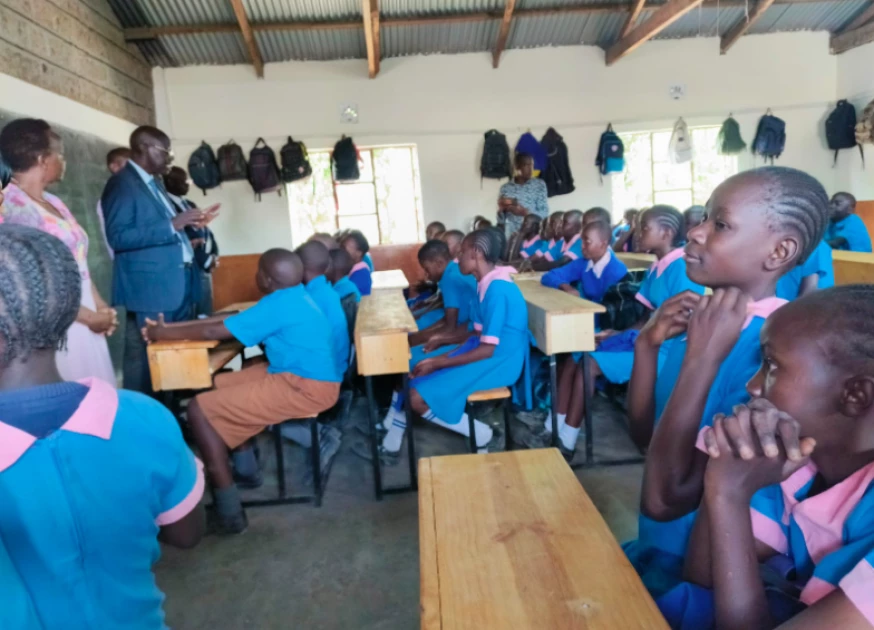Learning in public Junior Secondary Schools fails to kick off as teachers yet to be posted

Education PS Dr. Belio Kipsang when he monitored the opening of a Junior Secondary School (JSS) and distribution of textbooks for Grade 7 learners at Arap Moi Primary, Kajiado County, on January 30, 2023. PHOTO | COURTESY

Audio By Vocalize
Learning for Junior Secondary School (JSS)
students in a majority of public schools is yet to kick off due to delay in
the deployment of teachers to their new stations.
Most schools are waiting for teachers to
report before learning can commence by early next week, while those in private
schools have already began executing the new junior secondary curriculum.
In a public school in Kisii County that
Citizen TV visited on Tuesday, learners had arrived, but there was little to
tell them apart from the ones in primary school, save for the fact that while
those in primary school have started on their schooling, JSS students have
little to show for in terms of learning.
In stark contrast, in private schools,
learning started as early as Monday. The schools were well-equipped, children
well-outfitted, and teachers well-trained and raring to go.
“We had already studied the curriculum
design, lesson and action plans were in place, and so we were basically well
set. The teachers had already been orientated and everything ran smoothly,”
said Lee Salano, a teacher at Tender Care Academy in Nairobi.
While private schools carry on with their
academic activities, their counterparts in public schools are still waiting on
the government-provided teachers to report.
A source within the Teachers Service Commission
(TSC) told Citizen TV that the deployment letters for the over 30,000 teachers were
still being issued, delaying the posting of the teachers and consequently
delaying the onset of classroom learning.
Kitale School
Deputy Principal Paul Eseme said: “Kwa sasa tumeambiwa na wakuu wetu kwamba
walimu hawa walitumwa jana, tunatarajia waje leo ama kesho.”
The government has pledged to send one
teacher to each Grade 7 class in all public schools across the country; this
number however falls short of the requirements of the CBC mode of instruction.
“CBC
works well when the learning is indivudialised, the public school system
requires more teachers to handle all the individual needs of each learner,”
added Mr. Salano.
Mr. Eseme stated: “Iwapo
tutapata walimu kumi kutoka kwa serikali, itakuwa ni idadi nzuri ya kuweza
kutosha ili kazi ya masomo iendelee.”
The government maintains that this teacher
situation is being handled as a matter of urgency.
KICD CEO Prof.
Charles Ong’ondo stated: “In the next one week we shall be posting teachers, by
the end of February we shall have taken stock of any shortage.”
While the process of getting the public
schools set up for learning that is set to begin in earnest in a week’s time,
other schools which failed to qualify to host Junior Secondary Schools are up
in arms after their children were asked to join other bigger schools.
In Elgeyo Marakwet, the parents and elected
leaders want the Ministry of Education to rescind its decisions.
One of the parents
said: “Sisi tumechanga mahindi, tumeshona uniform, alafu mnatuambia hakuna
shule? Haiwezekani!”


Leave a Comment